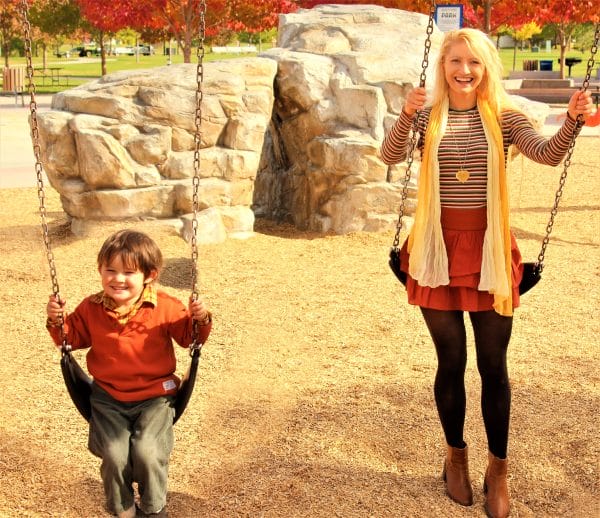Authoritative Parenting Pros and Cons
Parenting styles are as diverse as the families they stem from, each with unique approaches and outcomes on child development. Among the various parenting styles, authoritative parenting is often praised for balancing firmness and affection.
In this article, we will delve into the authoritative parenting pros and cons, aiming to provide a comprehensive overview for parents, caregivers, and educators. We will explore how authoritative parenting affects the child and weigh the benefits of authoritative parenting against its potential disadvantages.

What is Authoritative Parenting?
![]()
Authoritative parenting is a style characterized by high responsiveness and high demands. It is often described as a democratic form of parenting where parents set clear expectations and boundaries but also value communication and autonomy. Authoritative parents are supportive yet firm, encouraging independence while maintaining an overall structure in the household.
Pros of Authoritative Parenting
![]()
The benefits of authoritative parenting are backed by numerous studies, suggesting positive outcomes in children raised by authoritative parents. Here are some of the pros:
- Promotes Healthy Communication: Authoritative parents encourage open dialogue. This fosters an environment where children feel comfortable sharing their thoughts and feelings, leading to stronger parent-child relationships.
- Encourages Independence: By allowing children to make choices within set boundaries, authoritative parenting supports the development of independence and problem-solving skills.
- Develops Self-Discipline: High but reasonable expectations help children develop self-discipline and understand the importance of hard work and dedication.
- Boosts Self-Esteem: Supportive parenting that values a child’s opinions can contribute to higher self-esteem and confidence.
- Better Academic Performance: The structure and support provided by authoritative parents are linked to better academic outcomes in children.
- Positive Behavior: Children raised by authoritative parents tend to exhibit fewer behavioral problems. They are often more engaged, socially responsible, and less likely to engage in risky behaviors.
Cons of Authoritative Parenting
![]()
While there are many advantages, there are also some disadvantages of authoritative parenting to consider:
- Time and Energy-Intensive: Authoritative parenting requires a significant investment of time and energy to maintain open communication and enforce rules consistently.
- Can Be Perceived as Overly Demanding: Some critics argue that the high expectations set by authoritative parents might be stressful for certain children, potentially leading to anxiety.
- Potential for Conflict: As children grow and seek more independence, the negotiation aspect of authoritative parenting might lead to more parent-child conflicts.
- Challenging to Maintain Balance: Finding the right balance between firmness and responsiveness can be difficult, and parents may sometimes err on the side of being too permissive or too authoritarian.
How Does Authoritative Parenting Affect the Child?
![]()
The influence of authoritative parenting on a child’s development is significant. Children raised by authoritative parents often grow up to be well-adjusted adults with a host of positive traits. They tend to be responsible, capable of managing their emotions, and are more likely to make healthy choices. The democratic approach of authoritative parenting allows children to understand the reasoning behind rules and decisions, which can contribute to a deeper sense of morality and ethics.
Authoritative Parenting in Action: Examples and Case Studies
![]()
Real-world examples and case studies illustrate the impact of authoritative parenting. For instance, research has shown that children with authoritative parents often excel in school and are active participants in extracurricular activities. They are also more resilient in the face of adversity, able to cope with challenges effectively due to the problem-solving skills they’ve acquired.
On the other hand, some case studies indicate that children who perceive their parents’ expectations as too high may experience stress or pressure, which can lead to issues such as perfectionism or avoidance of challenges. It’s important for authoritative parents to be attuned to their children’s individual needs and adjust their approach accordingly.
Statistics Supporting Authoritative Parenting
![]()
Statistical evidence further supports the advantages of authoritative parenting. Surveys and studies consistently link this parenting style with lower rates of substance abuse, depression, and delinquency among adolescents. Additionally, authoritative parenting is associated with higher levels of academic achievement and social competence.
![]()
For those looking to adopt or improve upon an authoritative parenting style, here are some tips:
- Be Consistent: Consistency in rules and consequences is key to effective authoritative parenting.
- Listen Actively: Make sure to listen to your child’s perspective and validate their feelings.
- Adapt to Your Child: Tailor your approach to fit your child’s unique personality and developmental stage.
- Teach Problem-Solving: Rather than solving problems for your child, guide them in finding solutions on their own.
- Maintain a Positive Focus: Use positive reinforcement to encourage good behavior rather than relying solely on punishment for bad behavior.
Conclusion: Balancing the Pros and Cons
![]()
In conclusion, authoritative parenting offers a healthy developmental environment for children by combining structure with warmth and responsiveness. The pros of authoritative parenting, such as fostering independence, self-discipline, and strong communication skills, often outweigh the cons. However, it’s important for parents to remain flexible, avoid overly high expectations, and ensure that they adapt their parenting style to suit their child’s needs.
The disadvantages of authoritative parenting, while present, can often be mitigated through self-awareness and an understanding of the child’s perspective. When practiced thoughtfully, authoritative parenting can lead to positive outcomes, shaping children into confident, responsible, and well-adjusted adults.
Ultimately, parenting is a complex and dynamic journey. By considering the authoritative parenting pros and cons and striving to maintain a balanced approach, parents can create a nurturing environment that promotes the growth and well-being of their children.





